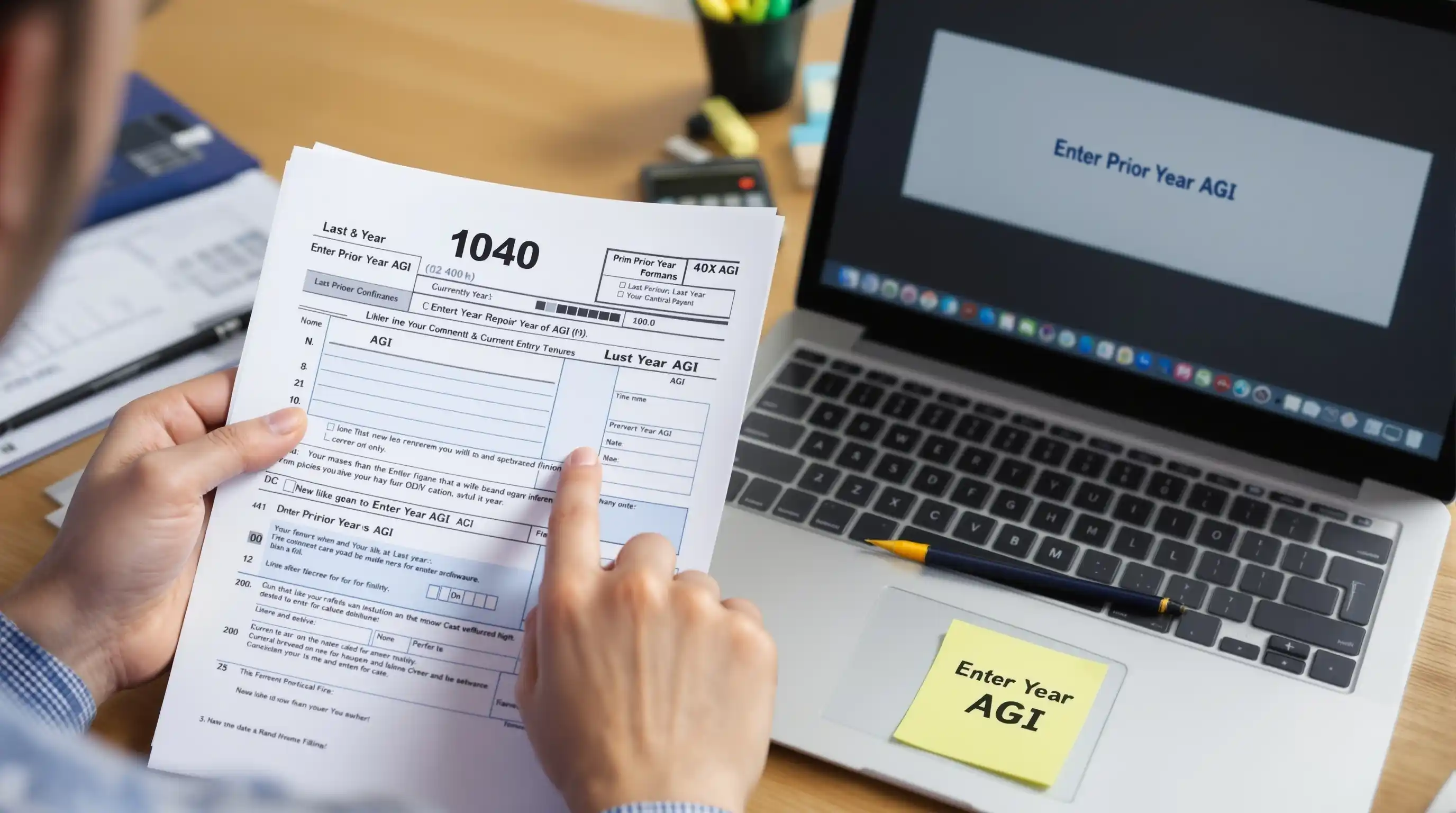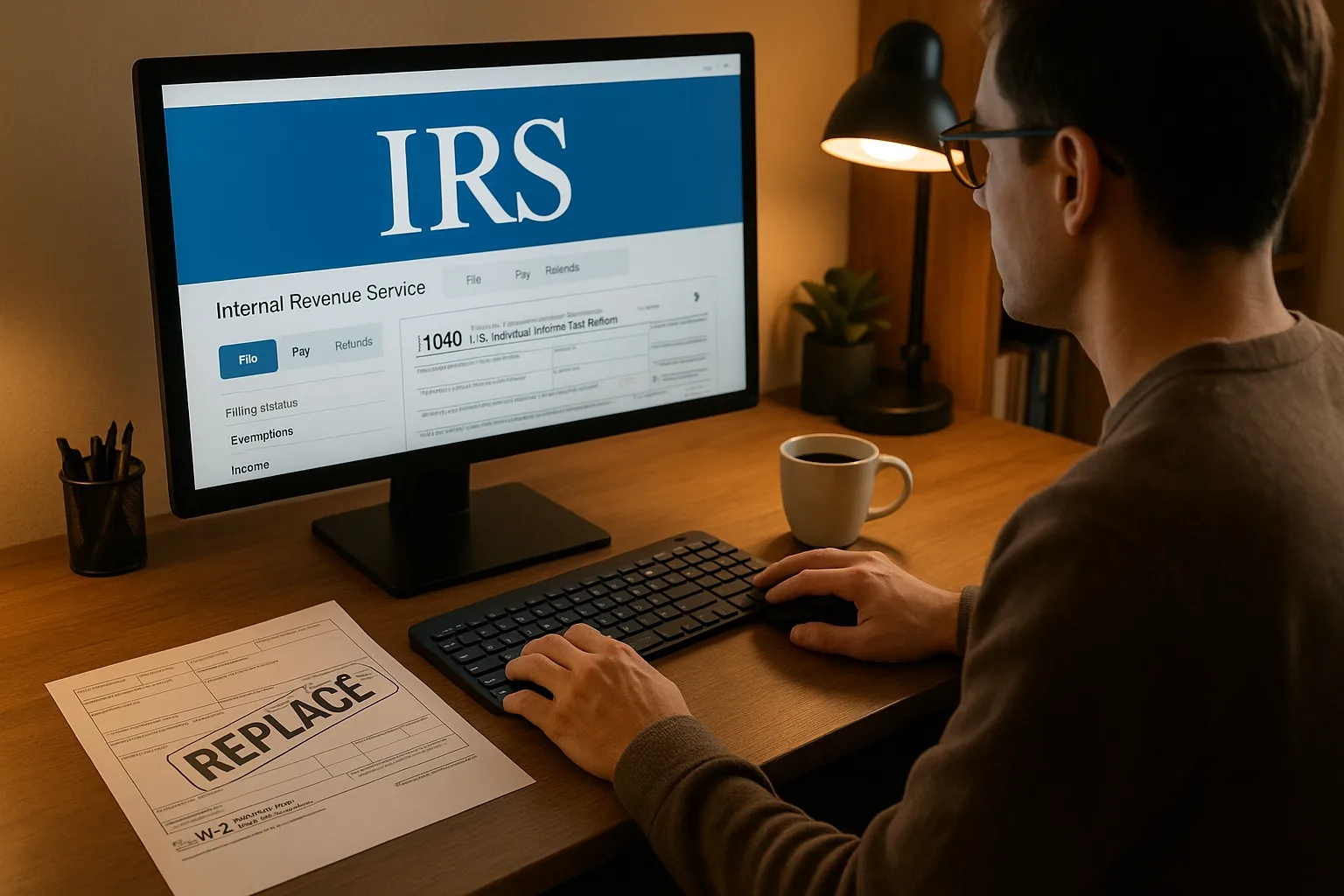IRS Form 637: Complete Guide to Excise Tax Registration for Tax Year 2018
Understanding federal excise tax registration requirements can be confusing, especially when your business deals with fuels, chemicals, or specific manufactured products. If you're wondering whether you need to file Form 637 for tax year 2018, you've come to the right place. This comprehensive guide breaks down everything everyday taxpayers and business owners need to know about the Application for Registration (For Certain Excise Tax Activities).
What IRS Form 637 Is For
Overview and Purpose
Form 637 is the official IRS application that businesses and individuals must use to register for certain excise tax activities. Think of it as your "license" to engage in specific business activities involving federal excise taxes—or to claim certain tax benefits related to these activities.
The form serves a dual purpose: it allows the IRS to track businesses involved in excise-taxable activities, and it enables qualifying businesses to receive tax benefits such as buying or selling products tax-free, or filing claims for refunds and credits.
For tax year 2018, Form 637 governed registration requirements under four main sections of the Internal Revenue Code:
Section 4101: Activities related to fuels (gasoline, diesel, kerosene, biodiesel, alcohol fuels)
Section 4222: Tax-free sales of certain manufactured products
Section 4662: Activities involving certain chemicals and taxable substances
Section 4682: Ozone-depleting chemicals (ODCs)
According to Publication 510 (March 2018), the registration system helps the IRS ensure compliance with excise tax laws while allowing legitimate businesses to operate efficiently within the federal excise tax framework.
When You’d Use IRS Form 637
Who Must File Form 637? Registration Requirements for 2018
Required Registrations
Not everyone needs to register—the IRS requires Form 637 only for specific activities. For 2018, you were required to register if you were:
Fuel Industry Participants:
Blenders (Activity Letter M): Anyone producing blended taxable fuel outside the bulk transfer/terminal system, including those creating alcohol fuel mixtures, biodiesel mixtures, or renewable diesel mixtures
Position holders, refiners, terminal operators, and enterers (Activity Letter S): Businesses handling gasoline, diesel fuel, or kerosene in the bulk transfer/terminal system
Pipeline and vessel operators (Activity Letter X): Operators moving fuel within the bulk transfer/terminal system
Alternative Fuel and Renewable Fuel Producers:
Biodiesel and renewable diesel producers/importers (Activity Letters AB and NB)
Alcohol fuel producers/importers (Activity Letter AF)
Second generation biofuel producers (Activity Letter SB)
According to the IRS 637 Registration Program guidelines, each business unit with a separate Employer Identification Number (EIN) must file a separate Form 637. This means parent companies and subsidiaries need separate registrations.
Optional Registrations
Some businesses may register but aren't required to do so. You could voluntarily register in 2018 if you were:
An ultimate vendor selling fuel for specific exempt uses
A credit card issuer making tax-exempt fuel sales to governments or nonprofits
An industrial user of gasoline
An alternative fuel claimant planning to claim credits
A diesel-water fuel emulsion producer
Voluntary registration allows these businesses to file claims for refunds or credits, or to buy and sell fuel tax-free for qualifying purposes.
Who Doesn't Need to Register
The following entities were exempt from Form 637 registration in 2018:
State and local governments (for most activities under Section 4222)
Consumers purchasing fuel for personal use
Retailers selling taxed fuel to end consumers
Businesses not involved in the specific activities listed in the form
Key Rules or Details for 2018
Industries and Transactions Covered by Form 637
Form 637 in 2018 primarily applied to these industries and business activities:
1. Fuel Production and Distribution
Gasoline stations, fuel terminals, refineries, pipeline operators, and importers handling gasoline, diesel, kerosene, and aviation fuel all fell under Form 637 requirements when operating within the bulk transfer/terminal system.
2. Alternative and Renewable Fuels
The biodiesel, ethanol, and renewable diesel industries required registration to produce these fuels or claim mixture credits. This included:
Agri-biodiesel derived from virgin oils (corn, soybeans, canola)
Biodiesel meeting EPA and ASTM D6751 standards
Renewable diesel from plant or animal sources
Alternative fuels like compressed natural gas (CNG)
3. Chemical Manufacturing
Businesses producing or importing certain chemicals covered under Sections 4661 and 4671 (though note that these taxes had expired after December 31, 1995, and didn't apply in 2018, they were later reinstated in 2022).
4. Ozone-Depleting Chemicals
Exporters of ozone-depleting chemicals (ODCs) needed Form 637 registration under Section 4682.
5. Manufactured Products
Manufacturers and sellers of specific products subject to manufacturers' excise taxes who wanted to make tax-free sales under Section 4221 required registration under Section 4222.
Step-by-Step (High Level)
Step-by-Step Guide: How to Complete Form 637 for 2018
Completing Form 637 requires attention to detail and gathering substantial documentation. Here's how to navigate each section:
Part I: Applicant Information
Lines 1-5: Basic Business Details
Line 1: Enter your legal business name exactly as registered with the IRS
Line 2: Include any trade name or "doing business as" (DBA) name
Line 3: Your complete business address (the IRS doesn't accept P.O. boxes for registration purposes; they need a physical location)
Line 4: Your nine-digit Employer Identification Number (EIN)
Line 5: Business telephone number
Pro Tip: Make sure your EIN matches your business entity type. A common mistake is using a personal SSN instead of an EIN, which will cause immediate rejection.
Part II: Activity Information
This is the heart of Form 637. You'll select specific "Activity Letters" corresponding to your business operations:
Key Activities for 2018:
Check Activity Letter M if you blend fuels outside bulk terminals
Check Activity Letter S if you're a position holder, refiner, or terminal operator
Check Activity Letter AB for agri-biodiesel production
Check Activity Letter NB for biodiesel or renewable diesel production
Check Activity Letter AF for alcohol fuel production
Check multiple letters if you conduct multiple qualifying activities
The Form 637 instructions contain a complete chart listing all available activity letters. Choose only those activities you currently conduct or plan to conduct within a reasonable timeframe.
Part III: Registration Tests
For many activities, particularly those under Section 4101, you must meet three registration tests:
1. Activity Test
Demonstrate you're regularly engaged in (or will be within a reasonable time) the activity for which you're registering. Provide:
Business licenses or permits
Contracts with suppliers or customers
Financial statements showing related transactions
Facility descriptions and equipment listings
2. Acceptable Risk Test
Prove that neither you nor any "related person" has been penalized for wrongful acts including:
Tax fraud convictions
Failure to deposit or pay taxes
Previous Form 637 registration revocations
"Related persons" include officers, owners holding 5% or more, and entities under common control.
3. Adequate Security Test
Show adequate financial resources and satisfactory tax history, or post a bond. The IRS evaluates:
Your history of timely tax filing and payment
Financial stability and creditworthiness
Sufficient capital to operate your business
Part IV: Additional Information and Attachments
Depending on your selected activities, attach:
Proof of premises: Lease agreements, property deeds, or facility descriptions
Financial documents: Recent tax returns, financial statements, or bank references
Operating authority: State licenses, EPA registrations, or DOT permits
Organizational documents: Articles of incorporation or partnership agreements
For fuel-related activities, include detailed descriptions of storage facilities, including tank capacities, piping diagrams, and terminal locations.
Signature Requirements
Form 637 must be signed by someone with legal authority to bind the business:
Corporate officer (president, vice president, treasurer)
Partner (for partnerships)
Sole proprietor
Authorized representative with power of attorney (include Form 2848)
Unsigned applications are automatically rejected.
Filing Procedures: Where and How to Submit Form 637
No Electronic Filing in 2018
Unlike many IRS forms, Form 637 could not be filed electronically for tax year 2018. The IRS required paper submissions sent via mail or fax.
Mailing Address
Send completed Form 637 applications to:
Department of the Treasury
Internal Revenue Service Center
Excise Operations Unit - Form 637 Mail Stop 5701G
Cincinnati, OH 45999
Fax Submission
Alternatively, fax Form 637 to the toll-free number:
855-887-7735
According to the 637 Registration Program guidelines, faxed applications receive the same processing priority as mailed submissions.
Important: Retain proof of mailing or fax transmission. Include all pages and attachments—incomplete submissions cause processing delays.
No Filing Deadline
Unlike tax returns, Form 637 doesn't have an annual filing deadline. However, you must register before engaging in the activity requiring registration. Operating without proper registration exposes you to penalties under IRC Section 6719.
The IRS typically processes applications within 60-90 days, though complex applications involving multiple activities or requiring site inspections may take longer.
What Happens After You File
Receiving Your Letter of Registration
Upon approval, the IRS issues Letter 3689, your official Letter of Registration. This letter includes:
Your unique registration number
Approved activity letters
Effective date of registration
Terms and conditions of your registration
Keep Letter 3689 in a safe place—a copy of your Form 637 application is not proof of registration. You'll need to present your registration letter to suppliers, terminals, and customers for tax-free transactions.
Common Mistakes and How to Avoid Them
Frequent Errors That Delay or Deny Registration
- Incomplete Applications
Missing signatures, unchecked activity letters, or absent attachments trigger automatic requests for additional information, delaying processing by weeks. - Wrong EIN Usage
Using a personal Social Security Number instead of a business EIN, or listing an incorrect EIN, leads to immediate rejection. - P.O. Box Addresses
The IRS requires physical business locations for most activities. Listing only a P.O. box without a street address causes problems, particularly for activities requiring site inspections. - Insufficient Documentation
Failing to provide adequate proof of business operations—such as contracts, licenses, or financial statements—results in denial under the activity test. - Undisclosed Related Parties
Not revealing connections to previously penalized individuals or entities violates the acceptable risk test and may constitute fraud. - Multiple Activity Letters Without Justification
Applying for numerous activities without demonstrating legitimate business need raises red flags and may trigger enhanced scrutiny or denial.
Penalties for Operating Without Registration
Under IRC Section 6719, failure to register when required carries severe consequences:
Initial penalty: $10,000 for the initial failure to register
Ongoing penalty: $1,000 for each day you continue operating without registration after the initial penalty
These penalties apply automatically—the IRS doesn't need to prove intentional wrongdoing. For a business operating just 30 days without required registration, the total penalty reaches $40,000 ($10,000 initial + $30,000 ongoing).
According to IRM 4.24.2.6, the IRS may waive these penalties only if you demonstrate "reasonable cause" for the failure, which typically requires showing circumstances beyond your control prevented timely registration.
Tax Assessment Penalties
Beyond registration penalties, operating without proper registration prevents you from:
Making or accepting tax-free fuel sales
Claiming excise tax credits or refunds
Avoiding tax assessments on transactions
The IRS can assess unpaid excise taxes retroactively, plus interest and additional penalties for late payment, potentially totaling 25-50% of the unpaid tax amount.
Criminal Penalties
Willfully operating without registration or fraudulently obtaining registration can trigger criminal prosecution under IRC Chapter 75, with potential felony charges, fines up to $250,000, and imprisonment up to five years.
Practical Tips and Best Practices (2018)
Practical Tips and Examples for 2018 Tax Year
Scenario 1: Small Fuel Blender
Background: Joe owns a small company that purchases taxed gasoline and ethanol, blends them into E85 (85% ethanol fuel), and sells the mixture to local gas stations.
Form 637 Requirement: Joe must register with Activity Letter M (Blender) because he's producing blended taxable fuel outside the bulk transfer/terminal system.
Practical Steps:
Complete Form 637 listing Activity Letter M
Attach his business license, federal tax returns showing fuel purchases, and contracts with ethanol suppliers
Provide photos and descriptions of his blending facility and storage tanks
Submit documentation of his ethanol purchases showing volume and pricing
Mail the complete package to Cincinnati
Timeline: Joe should apply 90 days before beginning blending operations to allow processing time.
Scenario 2: Biodiesel Producer
Background: Maria's company produces biodiesel from soybean oil meeting ASTM D6751 standards. She wants to claim the biodiesel mixture credit.
Form 637 Requirement: Maria must register with Activity Letter AB (agri-biodiesel producer) because soybean oil is a virgin vegetable oil.
Practical Steps:
Complete Form 637 with Activity Letter AB
Attach EPA fuel registration documentation
Include ASTM D6751 test results for her biodiesel
Provide her production facility lease and equipment list
Submit fuel samples to IRS for testing (mandatory for biodiesel registrations)
Include financial statements showing adequate resources for production
Special Note: Biodiesel producers must maintain detailed production records and certificates of analysis. The IRS may conduct unannounced facility inspections.
Scenario 3: Terminal Operator
Background: ABC Energy operates a fuel terminal receiving gasoline and diesel via pipeline and delivering fuel to trucks at the rack.
Form 637 Requirement: ABC must register with Activity Letter S (terminal operator) because they operate a terminal in the bulk transfer/terminal system.
Practical Steps:
Complete Form 637 selecting Activity Letter S
Include terminal operating agreements and pipeline connection contracts
Provide detailed terminal diagrams showing tanks, racks, and loading facilities
Submit proof of adequate bond or financial security (typically required for larger operations)
Include prior years' Form 720 (Quarterly Federal Excise Tax Return) to demonstrate tax history
Compliance: ABC must also file monthly Form 720-TO (Terminal Operator Report) reporting all fuel receipts and disbursements.
Edge Case: Out-of-State Supplier
Question: Can a Canadian company register for Form 637 to import gasoline into the United States?
Answer: Yes. Foreign businesses conducting U.S. fuel transactions must register regardless of where they're headquartered. According to IRM 4.24.2.2, entities with U.S. business transactions involving taxable fuel must register under IRC 4101, regardless of domicile.
The Canadian company would:
Obtain a U.S. Employer Identification Number (EIN) first
Register with Activity Letter S as an "enterer"
Provide documentation of their Canadian business registration
Demonstrate adequate security (usually a bond for foreign entities)
FAQs
1. Who is required to file Form 637?
Businesses engaged in specific excise tax activities must file Form 637 before starting those activities. This includes fuel blenders, biodiesel producers, terminal operators, pipeline operators, position holders, refiners, and certain chemical manufacturers. You're also required to register if you produce alcohol, renewable diesel, or other alternative fuels. Each business entity with a separate EIN needs its own registration. The IRS 637 Registration Program provides a complete list of required registrations.
2. Which industries or transactions does this form apply to?
Form 637 primarily applies to the fuel industry—including petroleum refiners, terminal operators, biodiesel producers, fuel distributors, and blenders. It also covers businesses exporting ozone-depleting chemicals and manufacturers making tax-free sales of certain products like tires, coal, and fishing equipment under Section 4221. Chemical manufacturers dealing with taxable substances may need registration depending on their specific products and transactions.
3. What is the filing frequency and due date for this form?
Form 637 is a one-time application, not an annual return—there's no recurring filing deadline. You must file before beginning any activity requiring registration. Once approved, your registration remains valid indefinitely unless revoked by the IRS or you cease operations. However, you must notify the IRS of material changes to your business (ownership changes, address moves, or activity changes) by submitting an updated Form 637 within 10 days of the change. According to Publication 510 (2018), failure to notify the IRS of changes can result in registration revocation.
4. Can I file this form electronically and how do payments work?
No, Form 637 could not be filed electronically in 2018. All applications had to be mailed to the Cincinnati IRS Center or faxed to 855-887-7735. There is no payment required with Form 637—it's an application for registration, not a tax return. However, some applicants may need to post a surety bond as part of the "adequate security test," particularly if they lack sufficient financial history or have prior tax compliance issues. Bond amounts vary based on estimated tax liability and business risk profile, typically ranging from $5,000 to $250,000 or more for large operations.
5. How do I claim a refund or credit on this form?
Form 637 itself doesn't claim refunds or credits—it's only for registration. Once registered, you claim excise tax credits and refunds on different forms depending on the type of claim:
Form 720 (Quarterly Federal Excise Tax Return) for quarterly credits
Form 8849 (Claim for Refund of Excise Taxes) for certain refund claims
Form 4136 (Credit for Federal Tax Paid on Fuels) attached to your income tax return for fuel tax credits
Many credits and refunds require active Form 637 registration at the time the taxable activity occurred. Without proper registration, your claims will be denied.
6. Which supporting schedules or attachments are commonly required?
Required attachments depend on your selected activities but typically include:
Business licenses and operating permits
Articles of incorporation or partnership agreements
Recent federal tax returns (Forms 1120, 1065, or Schedule C)
Financial statements or bank letters demonstrating financial stability
Facility descriptions with photos for fuel operations
Equipment lists and storage tank capacities
Contracts with suppliers or customers demonstrating business activity
EPA registrations for fuel producers
State fuel dealer licenses
Proof of adequate premises (lease agreements or property deeds)
For biodiesel and renewable diesel producers, you must also submit fuel samples for IRS laboratory testing. Missing attachments are the most common reason for application delays or denials.
7. What records should I keep for audits or examinations?
Once registered, maintain comprehensive records for all excise tax activities:
Fuel Operations Records (keep for at least 3 years):
Purchase invoices showing volume, price, and seller information
Sales invoices with buyer information and exemption certificates
Blending records documenting input and output volumes
Storage and inventory records
Bills of lading and shipping documents
Tax payment records (Forms 720)
Biodiesel/Renewable Diesel Producers:
Production logs and batch records
Certificates of analysis (ASTM D6751 test results)
Feedstock purchase records
EPA fuel registration certificates
Mixture credit calculations
General Business Records:
Your Letter of Registration (Letter 3689)
Notification certificates from registered buyers/sellers
Copies of all filed excise tax returns
Bond documents (if applicable)
The IRS can examine your records without advance notice if you're registered for fuel-related activities under Section 4101. According to IRM 4.24.2.3, facility inspections are part of the registration compliance program.
8. What are common errors that lead to penalties or interest?
Beyond the registration penalties already discussed, common operational mistakes after registration include:
- Operating Outside Approved Activities: Using your registration for activities beyond those approved leads to operating without registration, triggering Section 6719 penalties.
- Failure to Maintain Registration Requirements: Not maintaining adequate financial resources or letting bonds expire causes registration suspension and penalties.
- Late Tax Deposits: Missing quarterly Form 720 filing deadlines or failing to deposit excise taxes electronically via EFTPS results in late-payment penalties (2-10% depending on delay length) plus interest.
- Invalid Exemption Certificates: Accepting invalid or expired exemption certificates for tax-free sales exposes you to tax assessments plus penalties, typically 10% of unpaid tax.
- Inadequate Record-Keeping: Failing to maintain required records for 3+ years prevents you from substantiating tax-free sales or credits, resulting in claim denials and potential assessments.
- Not Reporting Changes: Failing to notify the IRS within 10 days of ownership changes, address moves, or new activities leads to registration revocation and penalties for operating without registration.
Interest on unpaid excise taxes compounds daily at the federal short-term rate plus 3%, currently totaling approximately 5-8% annually.
9. How do I amend or correct a previously filed Form 637?
Form 637 doesn't have a separate amendment form. To correct or update your registration:
Minor Changes (address, phone number, contact person):
Submit a letter explaining the changes
Include your registration number and EIN
Mail to the same Cincinnati address used for original applications
Material Changes (ownership, business structure, adding/removing activities):
Complete a new Form 637
Mark "AMENDED" at the top
Include your current registration number
Explain all changes in an attached statement
Provide supporting documentation for new activities or ownership
Submit within 10 days of the change
Ownership Changes require special handling. The new owner must apply for a new registration because Form 637 registrations aren't transferable. The previous registration becomes invalid upon ownership change. According to IRM 4.24.2.7, applicants acquiring existing fuel businesses should apply 60-90 days before the acquisition closes to avoid operational gaps.
Name Changes (due to incorporation or restructuring without ownership change) require:
New Form 637 marked "NAME CHANGE"
Evidence of the name change (state filing documents)
Your current registration number
The IRS will issue a new Letter 3689 with an updated registration reflecting approved changes. Continue using your existing registration until you receive the new letter.
10. Where are the official instructions and publications for Form 637?
The primary resources for Form 637 in 2018 include:
Forms and Instructions:
About Form 637 - Official IRS form page with current and prior year versions
637 Registration Program - Overview of registration requirements and procedures
Publications:
Publication 510 - Excise Taxes (Including Fuel Tax Credits and Refunds)
Publication 509 - Tax Calendars for excise tax filing deadlines
Internal Revenue Manual:
IRM 4.24.2 - Form 637 Excise Tax Registrations (detailed procedural guidance)
Registration Status Verification:
Online Form 637 Registration Status Check - Verify if a business holds valid registration
Contact Information:
Form 637 Questions: Call the IRS Excise Tax office at 1-866-699-4096 (toll-free) Monday-Friday, 8:00 AM - 6:00 PM Eastern Time
Written Correspondence: Mail to the Cincinnati address listed earlier
All official IRS guidance is available free at IRS.gov.
Conclusion: Staying Compliant with Form 637 Requirements
Form 637 registration represents a critical compliance requirement for businesses operating in the fuel, chemical, and certain manufacturing industries. For tax year 2018, understanding these requirements helped businesses avoid severe penalties while accessing important tax benefits.
The key takeaways for Form 637 compliance include:
Register before starting activities requiring registration—operating even one day without required registration triggers $10,000+ penalties
Maintain accurate, complete records for all excise tax transactions for at least three years
Monitor your registration status and report all material changes within 10 days
Understand which activities require registration versus those allowing optional registration
Submit complete applications with all required attachments to avoid processing delays
While the 2018 Form 637 requirements remain relevant for businesses that registered during that year, remember that tax laws evolve. For current-year filings or questions about ongoing compliance, always consult the latest IRS guidance or speak with a qualified tax professional specializing in excise taxes.
The federal excise tax system serves important environmental, infrastructure, and regulatory purposes. By understanding and complying with Form 637 requirements, you're not just avoiding penalties—you're participating responsibly in the nation's tax system while potentially accessing valuable credits and benefits for your business.
For additional questions or complex situations, consider contacting the IRS Excise Tax office directly or consulting with a tax attorney or CPA experienced in excise tax matters. Proper compliance from the start saves significant time, money, and stress compared to trying to correct registration issues after the fact.
Official U.S. Government Sources Referenced
IRS Form 637 Program Overview
About Form 637
Publication 510 - Excise Taxes
Publication 509 - Tax Calendars
IRM 4.24.2 - Form 637 Excise Tax Registrations
Online Form 637 Registration Status Check















